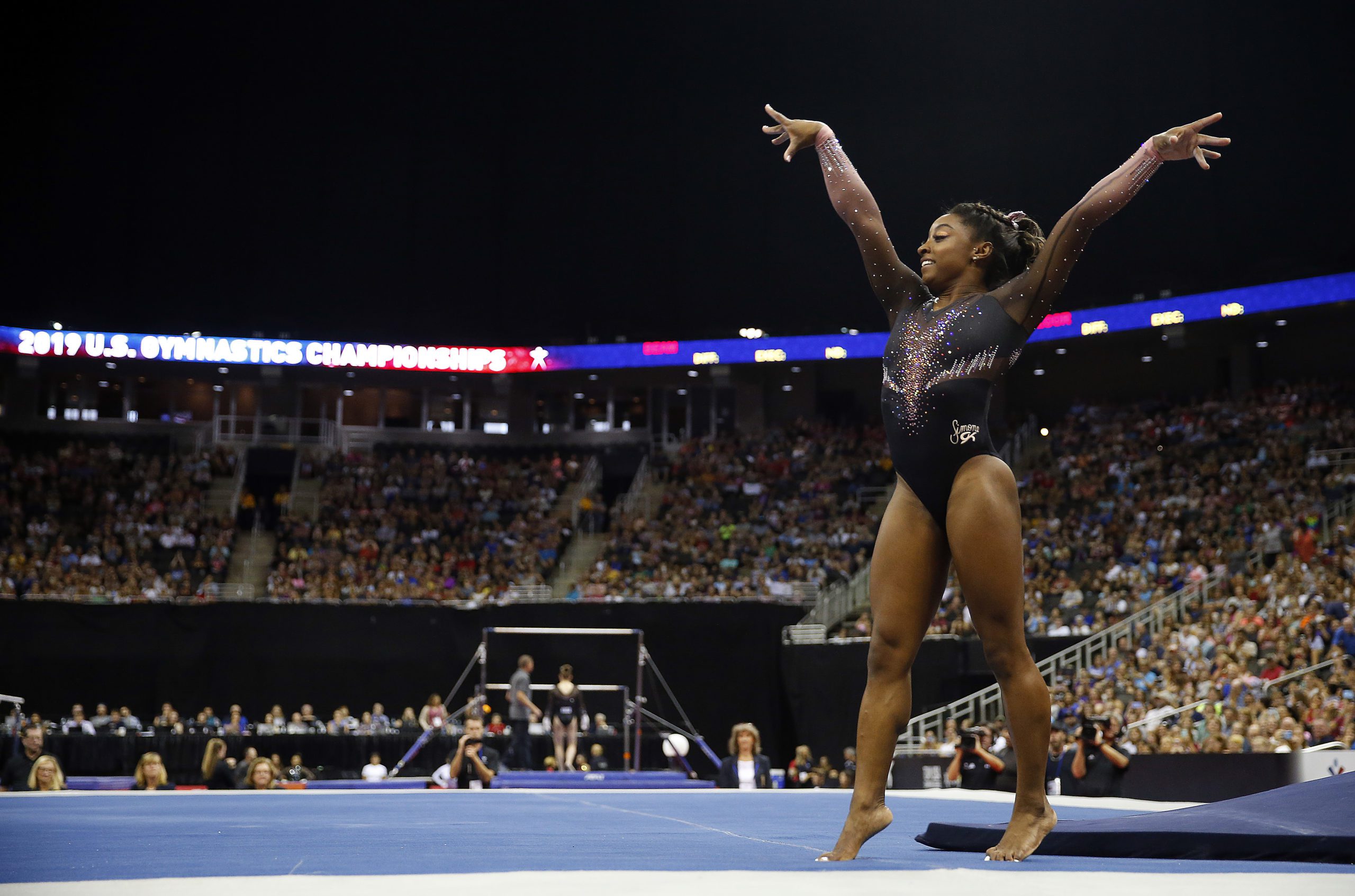Last Updated on September 7, 2023
Simone Biles is a loser. Suck it up, Buttercup. Take one for the team.
The social media cesspool was clogged up again with amateur psychologists weighing in on the stunning news from the Tokyo Olympics, when Biles withdrew from both the team and individual gymnastics competition, citing mental health reasons.
People — including some commentators who should know better but maybe were just jonesing for attention and clicks — played the insensitivity card right away.
“Are ‘mental health issues’ now the go-to excuse for any poor performance in elite sport? What a joke,” Piers Morgan tweeted.
There was nothing funny about any of this. Biles is a survivor of sexual abuse, still coping with the physical and emotional pain suffered at the hands of Larry Nassar, the team physician she trusted. She has dealt with depression.
And in the atmosphere of an Olympics tainted by the COVID-19 pandemic, she was dealing with a bit of stage fright because her parents — her rock during all competitions — had to stay home because of COVID restrictions.
It was piling on, in the worst way, and Biles took the healthy approach by stepping away.
If anything, Biles is to be honored and admired. At 26, she is a role model not only for her peers but as an intergenerational role model. If the COVID pandemic taught us anything, it’s simply made us more aware about the importance of managing our mental health no matter how old we are.
According to the National Alliance on Mental Illness, one in five U.S. adults experiences mental illness each year, one in 20 U.S. adults experiences serious mental illness each year, and suicide is the second leading cause of death among people aged 10-34.
These are invisible scars. If Biles broke her leg during competition, there would be an outpouring of sympathy. Not so much for someone who feels broken on the inside.
It’s easy to see a cast on a leg and feel empathy for a person crossing the street. The reaction is much different for someone who shows no outward signs of feeling pain, while fighting demons raging in their head.
Whether you are 26, 46 or 66, taking care of yourself mentally is a priority. She isn’t a quitter. She is a leader.
Biles has the double-whammy of being an elite athlete, and the heightened expectations of an Olympic year where casual fans suddenly become interested in sports.
She most certainly isn’t alone. Tennis star Naomi Osaka, who was upset in the third round of the Tokyo Olympics, took a mental health break from tennis before the Olympics by dropping out of the French Open in May and skipping Wimbledon.
Michael Phelps, the most decorated Olympian in history, admitted to entertaining thoughts of suicide while he was in a depressive funk.
“Mental health over the last 18 months is something people are talking about,” said Phelps, now an analyst for NBC’s Olympics coverage. “We’re human beings. Nobody is perfect. So yes, it is OK not to be OK.”
Biles returned some of the fire through her Instagram account, posting a statement by former gymnast Andrea Orris.
“It makes me so frustrated to see comments about Simone not being mentally tough enough or quitting on her team,” the message states.
“We are talking about the same girl who was molested by her team doctor throughout her entire childhood and teen years, won the world all-around championship title while passing a kidney stone, put her body through an extra year of training through the pandemic, added so much difficulty to her routines that the judges literally do not know how to properly rate her skills bc (because) they are so ahead of her time.
“All of this while maintaining her responsibilities to her endorsement deals, the media, personal relationships, etc. and some people can still honestly say ‘Simone Biles is soft. She is a quitter’
“That girl has endured more trauma by the age of 24 than most people will ever go through in a lifetime.”
Amen. It’s OK not to be OK.
Life lessons are much more valuable than any gold medal draped around one’s neck.
George Diaz has worked at major newspaper dailies across the country, such as “The Miami Herald,” “The Cincinnati Post,” and the “Orlando Sentinel,” where he spent nearly 30 years in a variety of roles, including columnist and a member of the editorial board. He is now a frequent contributor to Growing Bolder.














